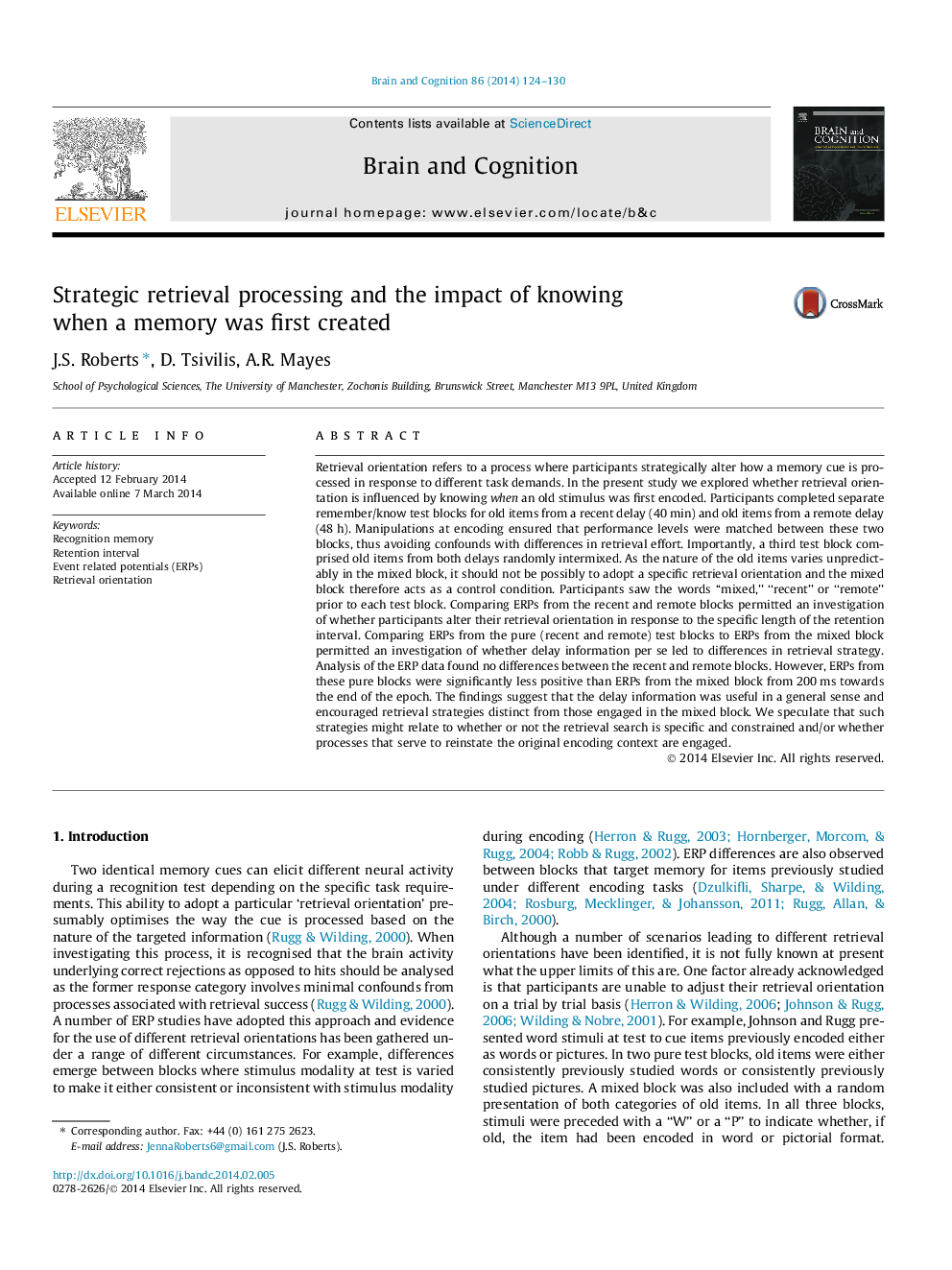| کد مقاله | کد نشریه | سال انتشار | مقاله انگلیسی | نسخه تمام متن |
|---|---|---|---|---|
| 924272 | 1473985 | 2014 | 7 صفحه PDF | دانلود رایگان |
• Cue processing is influenced by knowledge of when a stimulus was first encoded.
• Consistent recent/remote test blocks produce different ERPs than a mixed block.
• Mixed block ERPs are more positive and recollection is impaired.
• Retrieval orientation indices negatively correlates with remember discrimination.
Retrieval orientation refers to a process where participants strategically alter how a memory cue is processed in response to different task demands. In the present study we explored whether retrieval orientation is influenced by knowing when an old stimulus was first encoded. Participants completed separate remember/know test blocks for old items from a recent delay (40 min) and old items from a remote delay (48 h). Manipulations at encoding ensured that performance levels were matched between these two blocks, thus avoiding confounds with differences in retrieval effort. Importantly, a third test block comprised old items from both delays randomly intermixed. As the nature of the old items varies unpredictably in the mixed block, it should not be possibly to adopt a specific retrieval orientation and the mixed block therefore acts as a control condition. Participants saw the words “mixed,” “recent” or “remote” prior to each test block. Comparing ERPs from the recent and remote blocks permitted an investigation of whether participants alter their retrieval orientation in response to the specific length of the retention interval. Comparing ERPs from the pure (recent and remote) test blocks to ERPs from the mixed block permitted an investigation of whether delay information per se led to differences in retrieval strategy. Analysis of the ERP data found no differences between the recent and remote blocks. However, ERPs from these pure blocks were significantly less positive than ERPs from the mixed block from 200 ms towards the end of the epoch. The findings suggest that the delay information was useful in a general sense and encouraged retrieval strategies distinct from those engaged in the mixed block. We speculate that such strategies might relate to whether or not the retrieval search is specific and constrained and/or whether processes that serve to reinstate the original encoding context are engaged.
Journal: Brain and Cognition - Volume 86, April 2014, Pages 124–130
